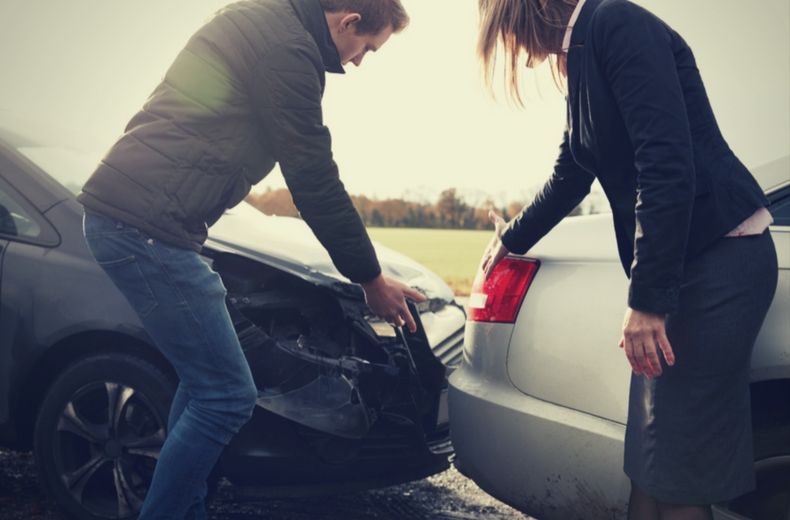In total, more than six-in-10 (63%) surveyed said they made a mistake on the roads as a result of being distracted by internal or external factors. Of these, more than four-in-10 (43%) said simply talking to passengers had led them to making mistakes behind the wheel, while thinking of something other than driving emerged as the second most frequent cause of error, with more than a third (37%) drivers saying this led them to do something wrong. Mistakes included missing a junction, exceeding the speed limit, ending up in the wrong lane and nearly colliding with another car, a pedestrian or a cyclist.
The findings are at odds with what drivers consider to be the most distracting things they could do – with the top distractions cited as talking on the phone (46%), applying make-up or shaving (42%) or dropping an item (35%).
The research underlines a major difference between perception and reality in terms of making mistakes on the road. Just under a fifth (18%) of those surveyed said talking to passengers was the biggest potential distraction, while only one-in-10 (11%) said the same about daydreaming.
The third most common error-inducing distraction was found to be looking at something unrelated outside the car (33%), despite less than a quarter (24%) considering this to be a possible cause of distraction.
Interacting with modern touchscreen systems also led to drivers making mistakes, with almost a third (26%) admitting to making an error on the roads while using one. This is the same as the proportion (30%) who believe they are a potential distraction.
A smaller proportion (21%) say adjusting car controls via traditional methods such as knobs and buttons caused them to do something wrong behind the wheel – making it the fifth biggest cause of error. However, only 15% listed this as a potential distraction.
While 46% of drivers felt talking on the phone, which is illegal when using a handheld device, to be the biggest thief of concentration, only 8% said doing so actually led them to make a mistake. The percentage is significantly higher among the under-25s (23%) – a point of major concern, as 55% of this age group admit to making and receiving handheld voice calls behind the wheel.
More than two-in-five (42%) respondents thought applying make-up or shaving could cause a motoring mishap, though in fact this was only the case for 2% of motorists. A further 6% went wrong while picking up something they’d dropped, in contrast with the 35% believing this to be the biggest potential distraction.
Eating and drinking behind the wheel was the reason behind one-in-10 drivers making errors (8%), in stark contrast to a fifth (20%) citing it as the most distracting thing to do while driving. In younger drivers however, one-in-five (18%) of 17 to 24-year-olds said eating and drinking led to them making a mistake. Smoking or vaping in the same age group caused 11% to have been distracted on the roads, compared to just 3% of all ages.
The latest Government data shows 940 people were killed or seriously injured in 2023 where drivers were found to be distracted by something within the vehicle they were travelling in.** In contrast, 280 people were killed or seriously injured when a driver was distracted by something outside the vehicle.
RAC road safety spokesperson Rod Dennis said: “Talking to passengers or daydreaming are so common that they aren’t perceived by drivers to be big distractions, but our research has revealed they are in fact responsible for most of the errors drivers admit to, whether that’s missing a turning, exceeding the speed limit or ending up in the wrong lane.
“While dropping an item or applying make-up are clearly extremely distracting and dangerous, they’re fortunately far less common than every-day things like talking to another passenger, an interfering thought or spotting something interesting outside the vehicle.
“Although your eyes are on the road, it’s easy for your mind to wander behind the wheel, especially on long journeys. Distractions can have catastrophic consequences for both drivers themselves and other road users, especially in extreme instances like failing to stop at a junction or at red light or crossing.
“The practice of driving is second nature for many of us, but our research suggests things we do without thinking in the car have far more potential to cause us to make errors than we might realise. Driving is still a very mentally demanding task, especially as we need to be able to react to what’s in front in a split-second, so it’s important we do everything we can to stay alert and minimise distractions.”

RAC sale – up to 33% off*
• Roadside cover from £5.29 a month†
• We get to most breakdowns in 60 mins or less
• Our patrols fix 4/5 breakdowns on the spot

* Research conducted with 2,691 drivers by Online95 for the RAC Report on Motoring 2024 between 23 March – 15 April 2024. Only those who hold a full, current UK driving licence, drive at least once a month and have a motor vehicle in their household took part. Responses were rim-weighted to be nationally representative of UK motorists in age, gender, socio-economic groups and all UK regions. Of this group, 63% (1,702 drivers) admitted to being distracted in some way while driving. Effective sample sizes vary
** UK Department for Transport 2023 data on contributory factors that led to road collisions










